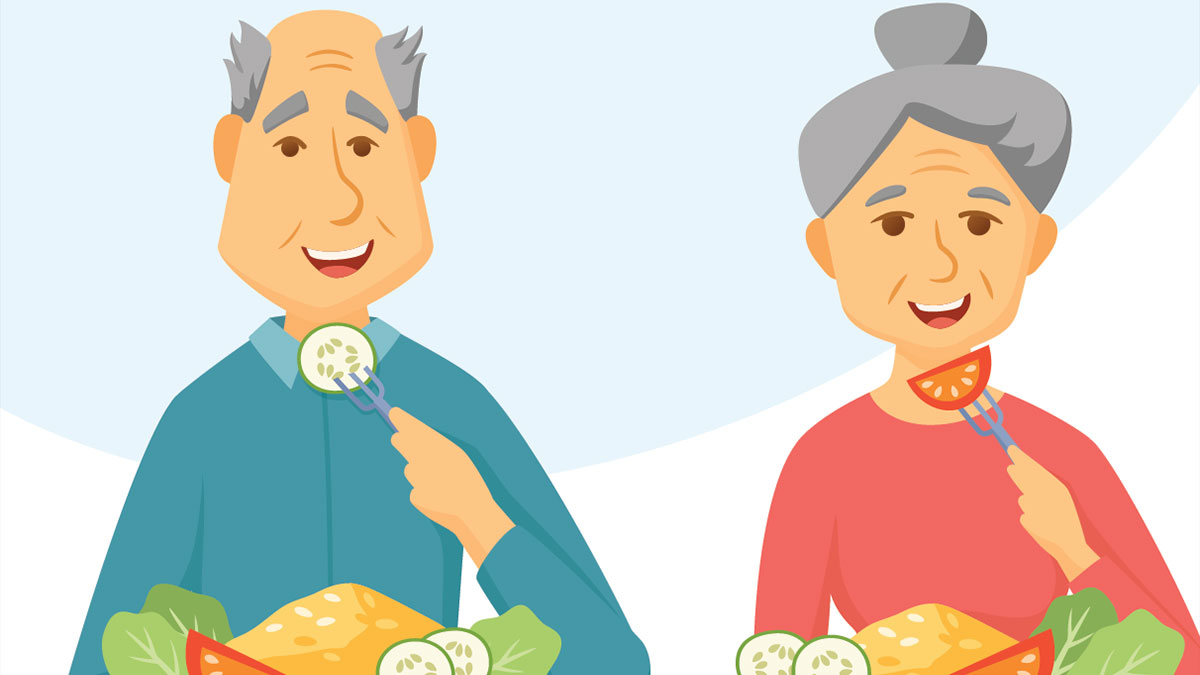Food is consistently a theme that brings people together – nightly with family around the dinner table, meeting friends at a restaurant, holiday meals and more. The importance of food both nutritionally and socially is woven into the cultural fabric of America. As people age, however, factors and feasibility change and subsequently alter their desire or ability to enjoy this basic need and beloved pastime.
“Many things can affect our eating habits as we age,” said Nichola Bricco, director of client and nutrition services with Meals on Wheels of Greenville. “We lose our ability to taste, or changes in our other senses, such as eyesight and smell, affect our desire to eat.
In addition to the taste of food, our appetites are triggered by the way food looks and smells. When our senses decrease, so can our appetites.” In addition to a decreased ability to experience food through the senses, the physical acts of shopping and cooking become harder. Components of eating that many people do not consider include transportation to and from the store; the ability to walk many aisles, push a heavy cart, carry a basket and read small print on labels and price tags; transferring the food from cart to car or bus and then again from car or bus to kitchen; and physically putting the food away – often on high shelves or in low cabinets. To cook the food requires planning, standing for long periods of time, reaching high and bending low to reach the ingredients, reading small print for measurements and more – not to mention the dishes and trash afterward. For many seniors, what used to be a normal part of life gets more complicated as their bodies physically age.
 “We lose the ability to shop and cook for ourselves due to a decrease in stamina, changes in income or even proximity to a store,” Bricco continued. “It can become very challenging to cook a balanced, nutritious meal, so many individuals depend on easier-to-prepare meals such as sandwiches, sodium-laden soups or frozen meals. However, these meals do not contain the nutrition we need.”
“We lose the ability to shop and cook for ourselves due to a decrease in stamina, changes in income or even proximity to a store,” Bricco continued. “It can become very challenging to cook a balanced, nutritious meal, so many individuals depend on easier-to-prepare meals such as sandwiches, sodium-laden soups or frozen meals. However, these meals do not contain the nutrition we need.”
As people age, their body’s need for vitamins actually increases. Tiffany Brush, meals operations director for Charleston Area Senior Citizens, said that eating a healthy diet of vitamin- enriched foods can stave off depression and fatigue.
“Making sure that there is enough fiber in their diet is also key in older adults, and it is important that your caloric intake is considered,” she explained. “The average 70-year-old is less active and leads a sedentary lifestyle. They will need to adjust their caloric intake to balance with this new lifestyle.”
Linda Naert, resource coordinator with the Trident Area Agency on Aging, stressed that in addition to proper nutrition, seniors should be vigilant about staying hydrated.
“Once you feel the need for fluids, you are already dehydrated,” she said. “Drink water and eat food that has high levels of liquid. Fruits and vegetables are a great source of vitamins and water. Be creative and eat healthy.”
For many, eating can lose its appeal mentally. Seniors often live alone, and cooking and eating for one simply doesn’t provide the same experience as when there is a couple or group eating together. The lack of social interaction can affect mood and increase depression.
Bricco said that, unfortunately, the changes in cooking and nutrition often go unnoticed by family and caregivers, especially when elderly individuals live alone or with another elderly person.
The importance of continued healthy eating as you age is vital and can lessen the onset of chronic health problems. One positive solution that boosts the food experience physically and mentally is having a family member, caregiver or neighbor regularly check in and assist with grocery shopping and meal preparation. Meal or senior service programs provide services free of charge when a personal connection cannot assist.
“Many seniors will say that they eat every day, but what they are eating – and with whom – is just as important as actually having that meal. Meals should be well-balanced and nutritious,” Bricco said. “Almost equally important is providing companionship – someone to be there with them as they eat, encouraging them and having simple conversations.”
By Anne Shuler Toole
